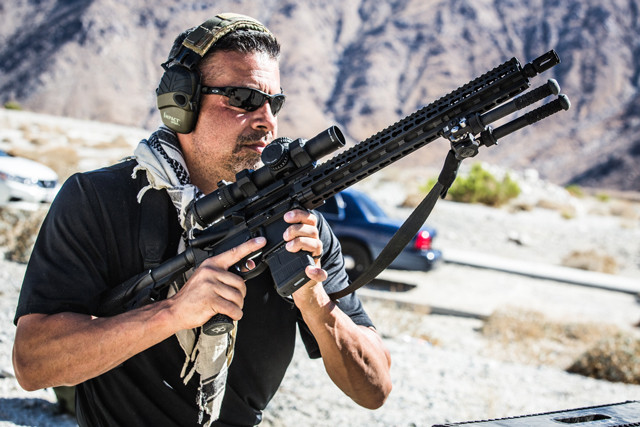- This email address is being protected from spambots. You need JavaScript enabled to view it.
EFFECTIVE TEAM BUILDING CONCEPTS
As a 29-year veteran of law enforcement I have been exposed to the best and worst that life has to offer. Most of my career I worked special assignments that were team based. As a canine handler, task force officer and over 16-years in SWAT taught me teamwork on a variety of fronts. As crucial as the teamwork is, what is just as important is the supervision aka “leadership”.
The principles of leadership are timeless, but as most things in law enforcement, often it is the way we apply the tool that gets us in trouble. I can say with great certainty that things were vastly different in the early 90’s when I started, compared to now. The way we do the job in every regard has evolved significantly. The military style, hard-nosed approach works less and less in current times. The more trips around the sun I make, and the closer retirement draws near, the more I see the need to educate those coming in behind me. Yes, I am saying you must teach people how to lead. It is not an insurmountable task, but it requires investing time in and by people. A wise man taught me “People won’t care what you know, until they know that you care”. This truth has enormous power to achieve success.
I should begin by offering a fault of my own, I did not grasp how much caring about and for my people encompassed my sergeant role. When I got promoted one of my mentors called me to congratulate me. He told me, “Kid, take care of your people”. But he did not tell me what that looked like. Looking back, a little more information would have helped me navigate some conflicts and some heavy problems I encountered. The two instances that will always be with me are when one of my officers was shot and his canine was killed. The second was when one of my officers came to me telling he was just diagnosed with cancer. Had I let my old school upbringing dictate my response to these two incidents, I could have damaged them greatly. But instead, I led with my heart. My compassion and understanding helped us all get through those trying times. These two encounters helped me to understand what caring for my people really meant.
A second key point is a leader should see that once they are gone, they are leaving organization, the unit and most importantly the people in a place to take their role. Your job is to develop the next generation to fill your shoes. My motto is to ‘Always leave it better than you found it’. Once you are gone, should you cross paths with these folks, you want to know you have a seat at their table. You do not want to be the one they hide from.
As a leader you will be tested by individuals and by the universe. Your people will come to you for guidance personally and professionally. You might be the only person in their life they can come to. That is an enormous responsibility that should be taken seriously because they are putting their lives in your hands, literally at times. You must be well-versed in the job and in life’s journey. You must be a warehouse of information so you can provide them a safe course of action. Here is a pro tip, even if you do not have the right way of doing something but you can give them ten different ways not to do it, that is success. That is humility at its finest.
Another topic worthy of discussion is that of driving your organization based strictly on policy and procedures. Do they have a place? Absolutely. But if you think policy and procedures are the end all answers I offer this. Most states have a vehicle code and a penal code, but people still violate them regularly and most of them repeatedly. You cannot default to policy to effectively lead. An effective leader can convey their passion and the overall mission through “Walk abouts”. That means hiding in your office pushing out an endless stream of memorandums on what needs to be done is a recipe for disaster. You need to explain what drives you, what your vision is and where the organization is going in a face-to-face conversation.
I once heard a law enforcement executive say, “Our most important commodity is our people”. Commodities are expendable while people are not. This was a whole new level of devaluing people I had not seen or heard in my career. Epic fail. Although I believe leadership CAN be taught, I am not so sure you can MAKE people care for them. Leadership is an equation that must have some constants (Principles) and variables (The individuals and the circumstances) to get the desired answer. That answer is high performing teams comprised of physically strong, mentally tough, and emotionally intelligent individuals.
Leadership is not one dimensional. You cannot find all the answers in a single story, text or class. Some people are truly born with “It”, but most of us had to learn by making mistakes, by being wrong and then being able to say, “I need to do better”. Then we just didn’t talk about it, we truly had to make conscious efforts to be better. Leadership is an art and you have to constantly be in a state of refinement of that art.
Cheers mates!
Jon
Jon Cabrera has been a police officer for the last 28-years. He is currently a patrol sergeant with the Southern California police department. Jon has worked a variety of assignments over his career and has 16-years of SWAT experience. During his career he has responded to, helped resolve and investigated (criminally and administratively) countless critical incidents. He currently teaches across the country on a variety of California POST approved subjects. Jon has a bachelor’s degree in criminal justice management from Union Institute and University, serves on the board of directors for a state SWAT association and is a small business owner.
Blog - Categories
FREE Target Downloads
-
pdf Time Flies Popular
-
-
pdf P.U.P. Drill Target Popular
-
pdf DOT CHALLANGE Target Popular
-
pdf SE Headshot Target Popular
Upcoming Courses
Veteran Owned Company

Sierra Element is a Veteran Owned Company.



